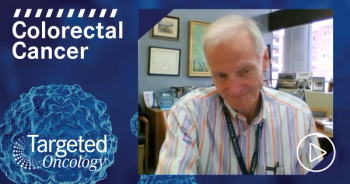
Tanios Bekaii-Saab, MD: Bevacizumab Side-Effects
What side effects can be expected with bevacizumab, and which are most common and bothersome to patients? What serious side effects might occur with bevacizumab?
Bevacizumab is essentially an agent that blocks VEGF. Its toxicities are mostly related to blocking VEGF, so the way I call its toxicities is that they're mostly silent toxicities. They don't manifest themselves the way they would with chemotherapy or EGFR inhibitors, meaning the patient doesn't exhibit them per se. They're limited to hypertension, and in about 12% of patients the hypertension will require medications. You would use oral hypertensives and 99% of patients would have their blood pressure controlled this way.
Issues with wound healing, so if the patient needs emergency surgery that's something to think about. If it's an elective surgery, then you just wait 4 weeks after the last dose of bevacizumab, and some prefer 6 to 8 weeks before you do the surgery, and then you start it again 4 weeks after the surgery. There's also the risk of perforation in 1% or 2% of all patients, and that risk should stop the patient from receiving bevacizumab. There is also the risk of proteinuria, or shedding proteins through the urine, but for the overwhelming majority of the patients it's not that significant.
Unresectable Colon Cancer: Case 1
68-year-old man was diagnosed with advanced, unresectable colon cancer has just started treatment with FOLFIRI plus bevacizumab.








































